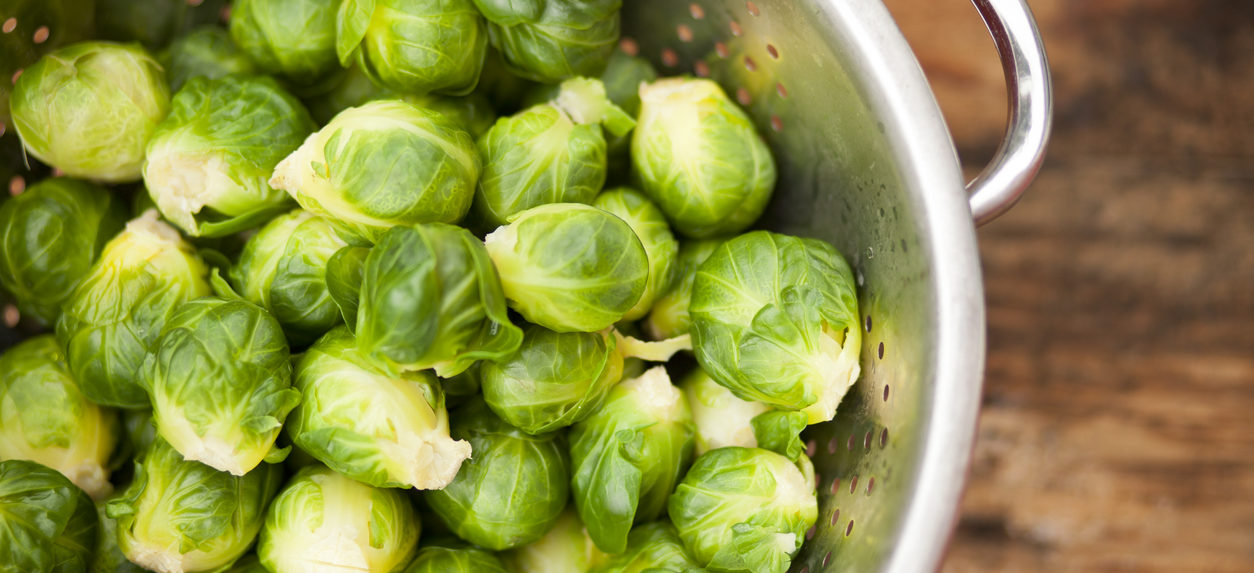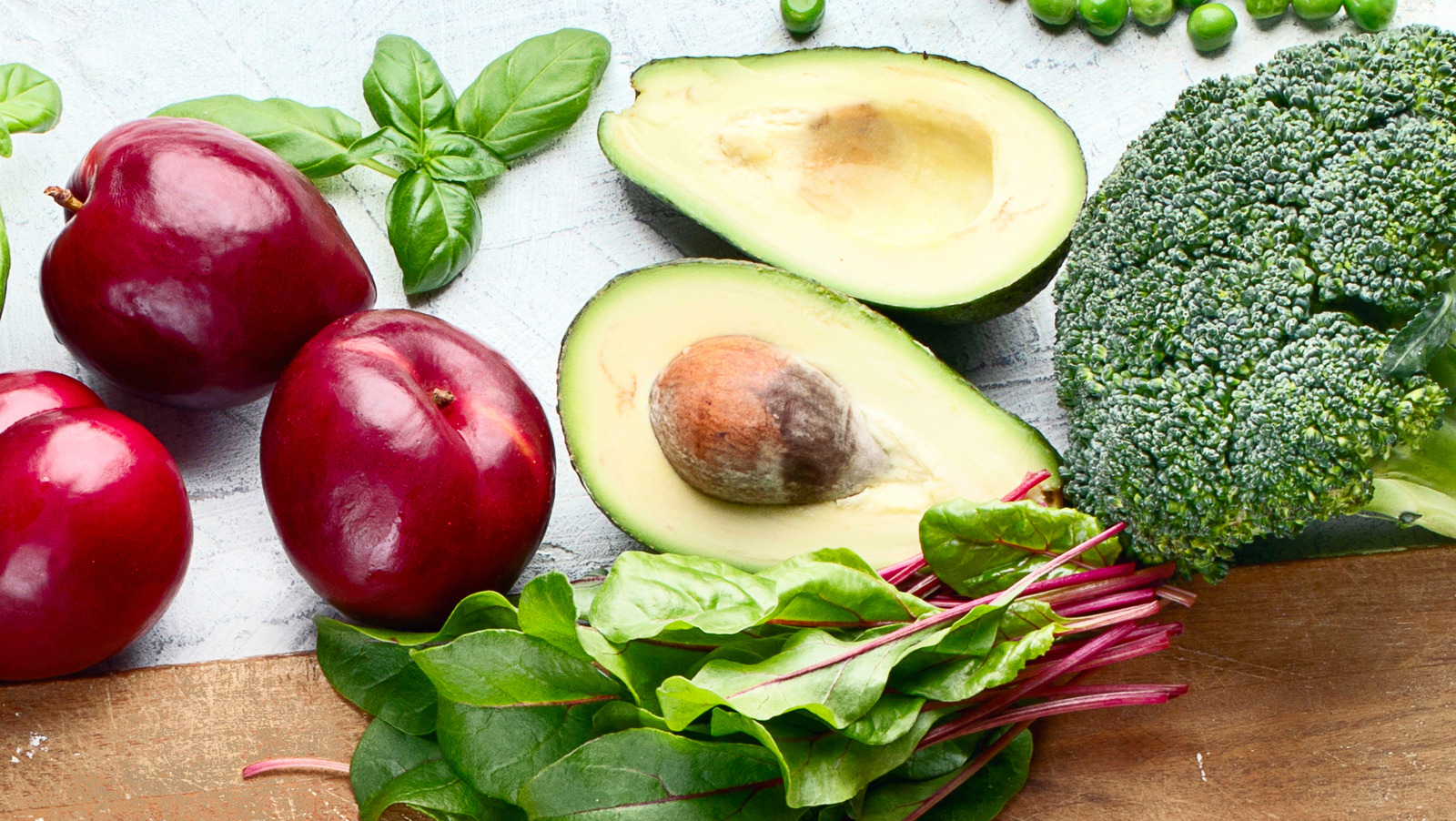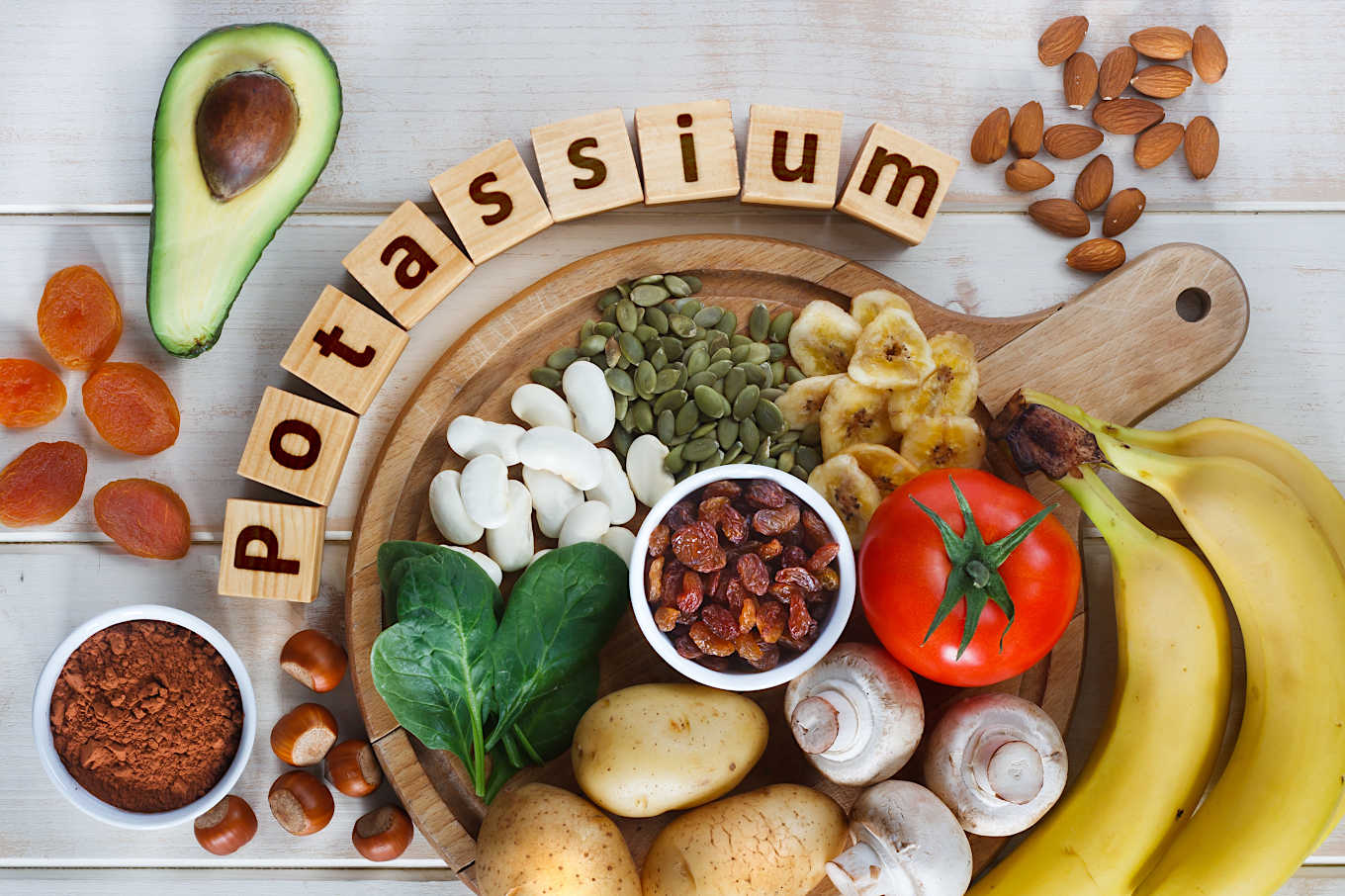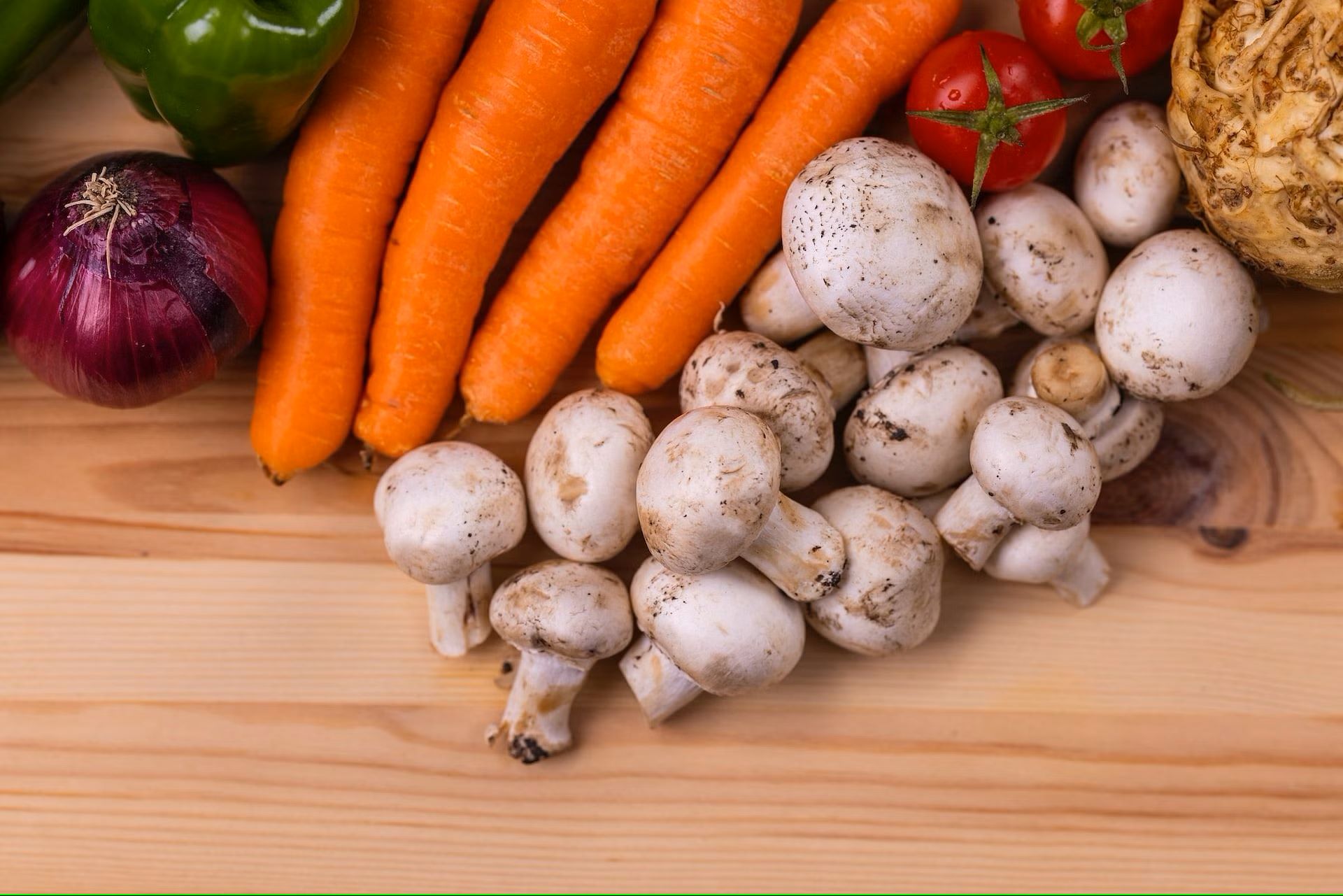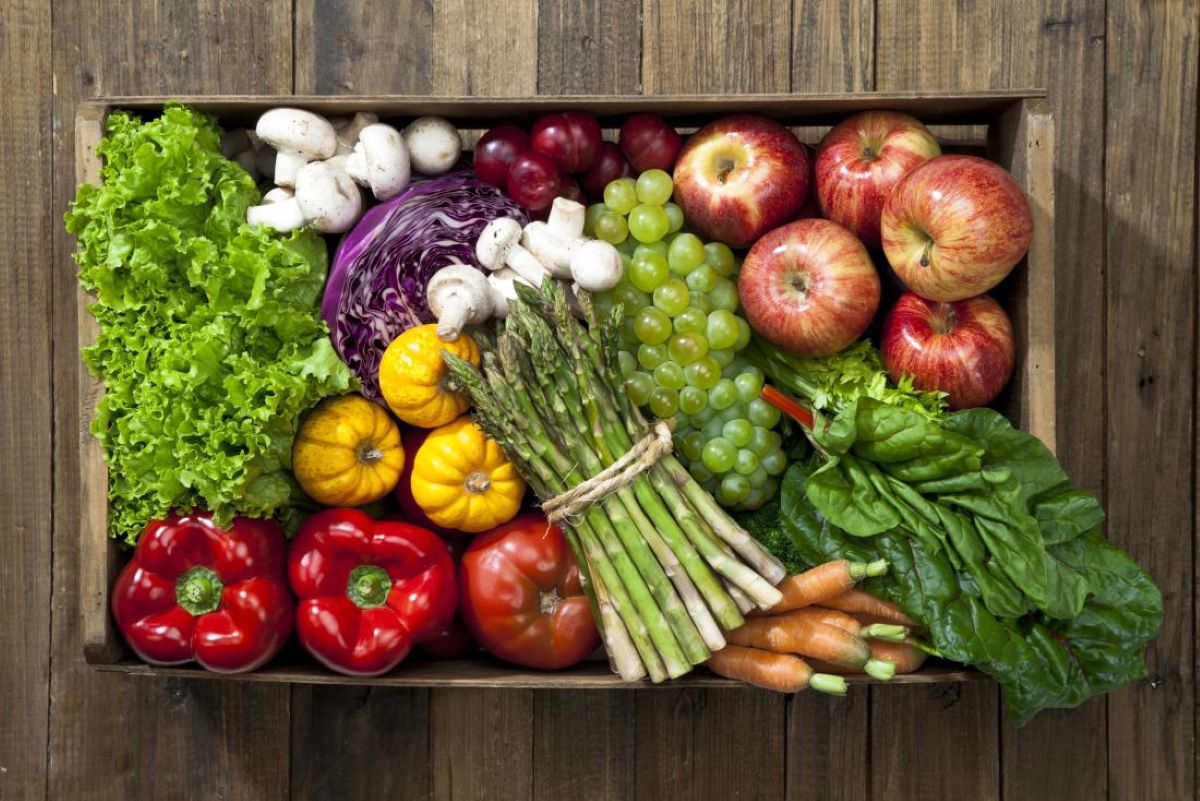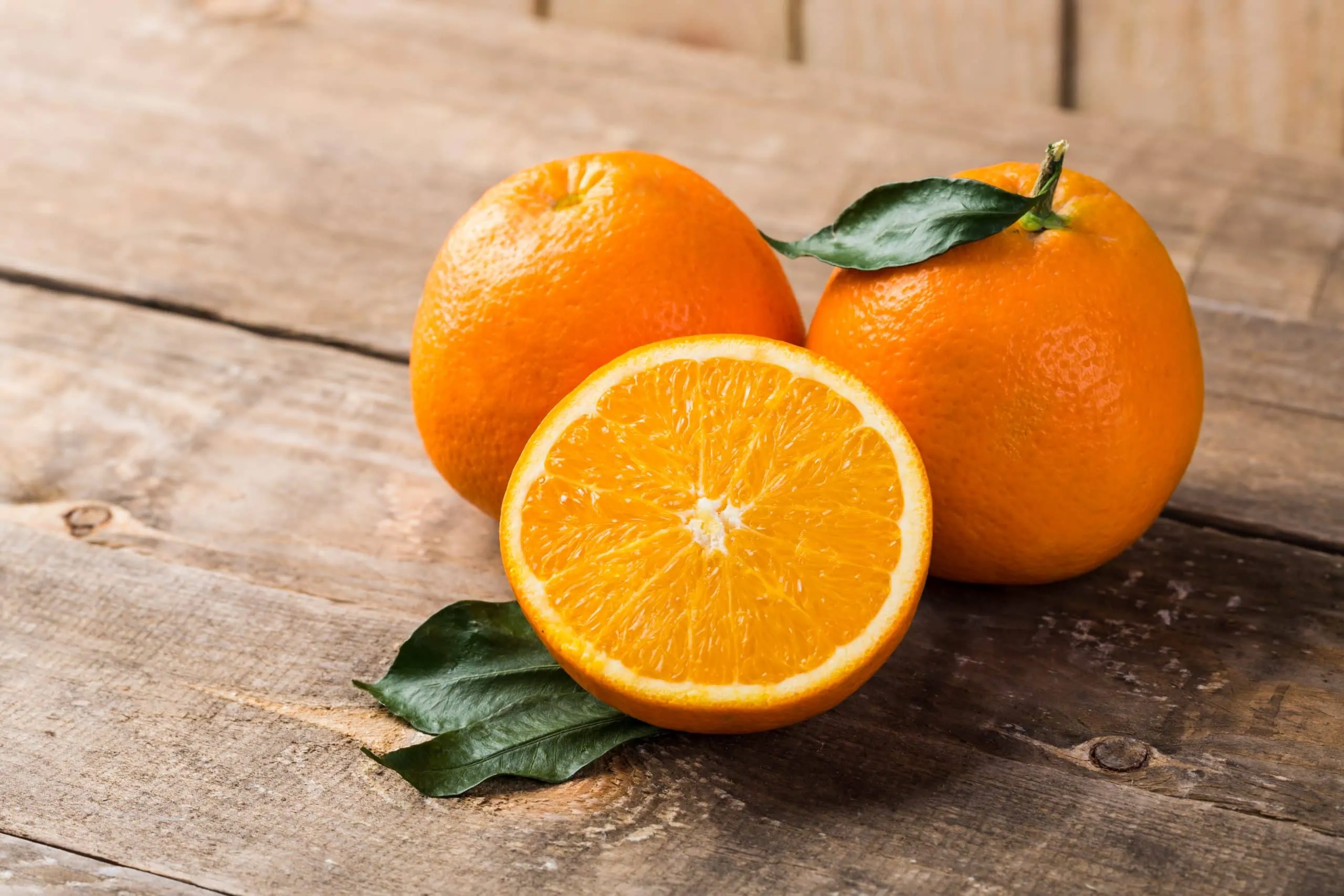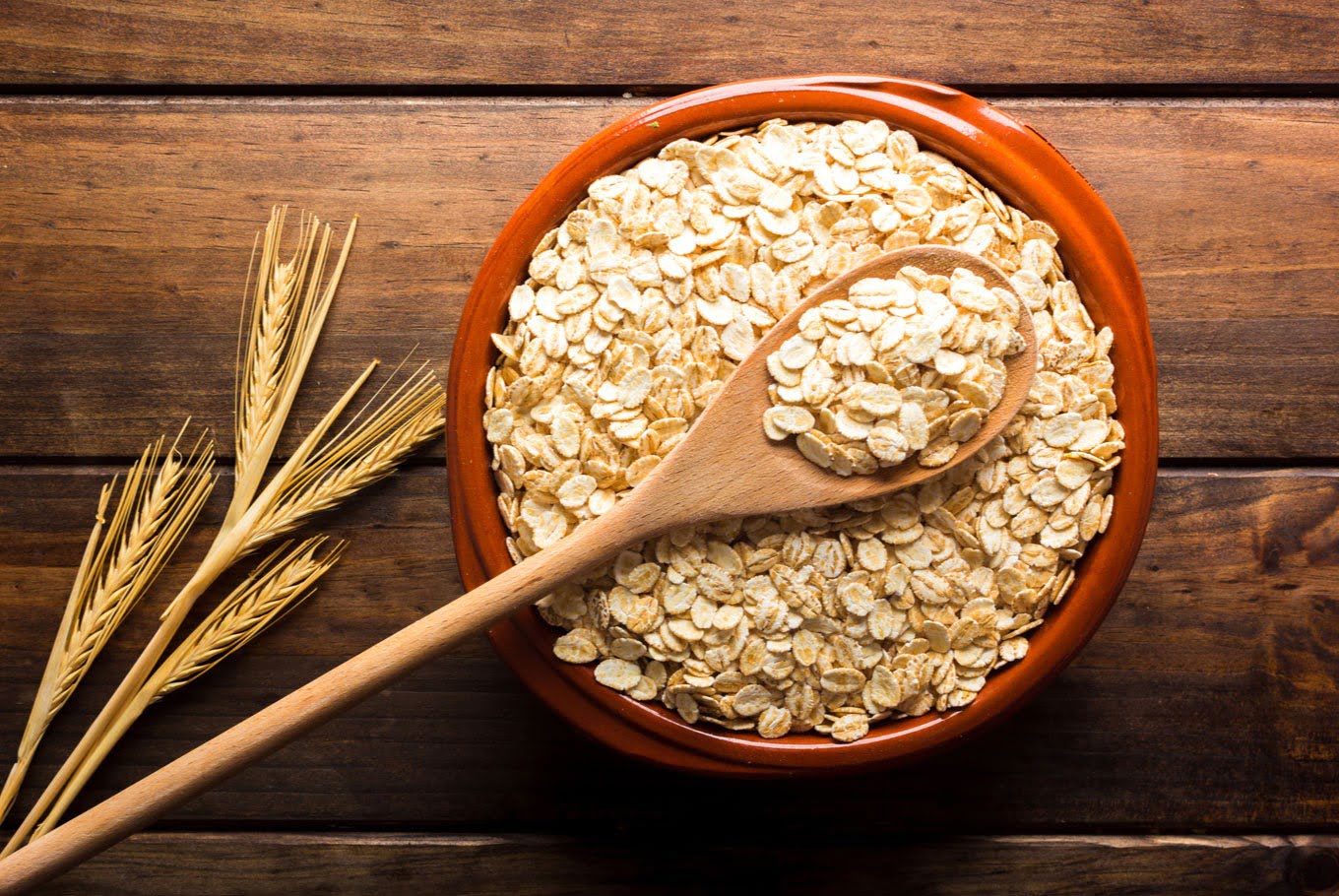Home>Gardening News and Trends>Latest News>What Vegetables Have Lots Of Fiber
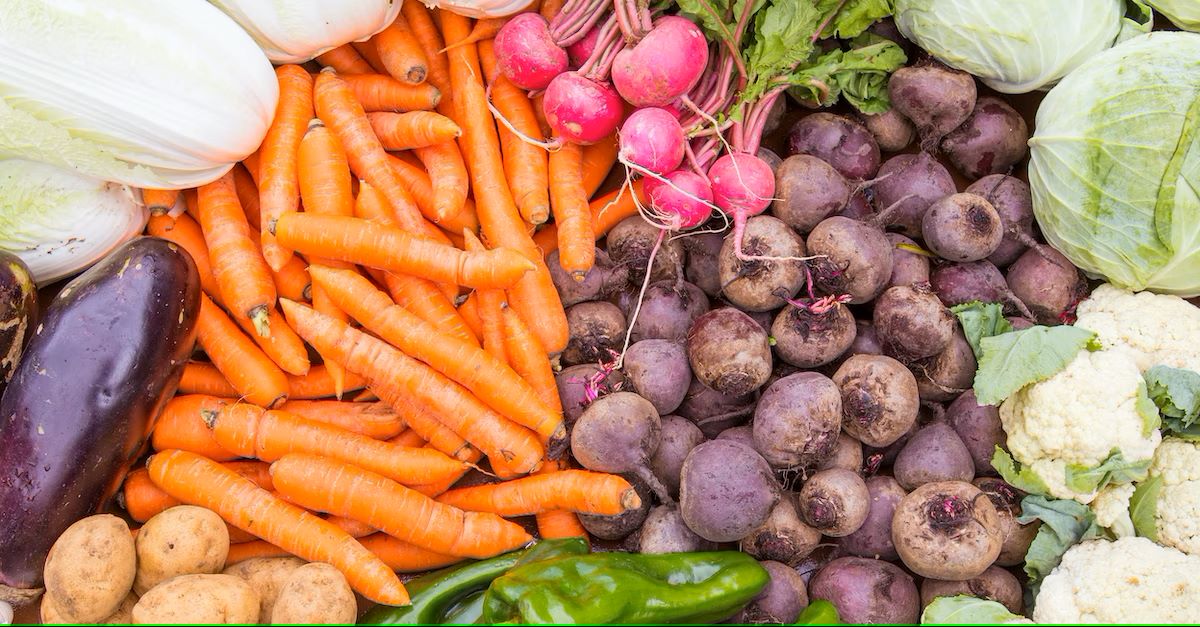

Latest News
What Vegetables Have Lots Of Fiber
Published: October 6, 2023
Looking for the latest news on vegetables high in fiber? Discover the best fiber-rich veggies for a healthy diet and digestive health.
(Many of the links in this article redirect to a specific reviewed product. Your purchase of these products through affiliate links helps to generate commission for Chicagolandgardening.com, at no extra cost. Learn more)
Table of Contents
Introduction
Welcome to the world of fiber-rich vegetables! When it comes to maintaining a healthy diet, it’s important to include foods that are high in fiber. Fiber plays a crucial role in our overall well-being, from aiding digestion to preventing chronic diseases. While there are several sources of dietary fiber, vegetables are among the best options available.
Vegetables are not only low in calories but also packed with essential nutrients, vitamins, and minerals. They are an excellent source of both soluble and insoluble fiber, which promote a healthy digestive system and help regulate blood sugar and cholesterol levels. Additionally, fiber-rich vegetables can contribute to weight management and provide a feeling of fullness, making them a valuable ally for those watching their caloric intake.
In this article, we will explore the top ten vegetables that are abundant in fiber, providing you with the knowledge and inspiration to incorporate them into your daily meals. Whether you are a dedicated health enthusiast or simply looking to improve your diet, these fiber-rich vegetables will undoubtedly take your nutrition to the next level.
So, without further ado, let’s dive into the wonderful world of vegetables and discover which ones pack the most fiber punch!
Why Fiber is Important for Our Health
Fiber plays a crucial role in maintaining good health and should be a prominent part of our daily diet. It provides numerous benefits that contribute to overall well-being. Here are some compelling reasons why fiber is important for our health:
1. Supports Digestive Health: One of the primary benefits of fiber is its ability to promote a healthy digestive system. Insoluble fiber adds bulk to our stools, helping to prevent constipation and maintain regular bowel movements. On the other hand, soluble fiber acts as prebiotics, nourishing the good bacteria in our gut, and supporting a healthy gut flora.
2. Weight Management: Incorporating fiber-rich vegetables into our diet can aid in weight management. High-fiber foods tend to be more filling, which helps reduce hunger and prevents overeating. Additionally, they can slow down the digestion and absorption of nutrients, keeping us satisfied for longer periods.
3. Controls Blood Sugar Levels: For individuals with diabetes or pre-diabetes, fiber can play a valuable role in controlling blood sugar levels. Soluble fiber helps to regulate the release of glucose into the bloodstream, preventing sharp spikes and promoting stable blood sugar levels.
4. Lowers Cholesterol Levels: Eating foods high in soluble fiber, such as vegetables, can help lower LDL (bad) cholesterol levels. Soluble fiber binds to cholesterol in the digestive system, preventing its absorption and removing it from the body. This, in turn, can reduce the risk of heart disease and stroke.
5. Reduces the Risk of Chronic Diseases: Several studies have shown a correlation between a high-fiber diet and a reduced risk of chronic diseases such as heart disease, stroke, type 2 diabetes, and certain types of cancer. The antioxidants and phytochemicals present in fiber-rich vegetables contribute to their protective effects.
6. Enhances Gut Health: Our gut microbiota plays a crucial role in various aspects of health, including immunity and mental well-being. Fiber acts as a prebiotic, nourishing the beneficial bacteria in our gut, helping to maintain a healthy balance and promote optimal gut health.
By understanding the importance of fiber for our health, we can make informed choices about our dietary habits. Incorporating fiber-rich vegetables into our meals is an excellent way to ensure our bodies receive the necessary nutrients for optimal functioning.
Vegetables Rich in Fiber
Now that we understand the importance of fiber for our health, let’s explore the top ten fiber-rich vegetables that deserve a place in our daily diet:
- Artichokes: Artichokes are not only delicious but also incredibly high in fiber. Just one medium-sized artichoke provides around 10 grams of fiber.
- Brussels Sprouts: These mini cabbages are packed with nutrients and fiber. Half a cup of cooked Brussels sprouts offers around 4 grams of fiber.
- Broccoli: Broccoli is not only a great source of vitamins and minerals but also provides about 2.5 grams of fiber per cup.
- Carrots: Carrots are not only known for their beta-carotene content but are also a good source of fiber. One medium-sized carrot contains around 2 grams of fiber.
- Spinach: Popeye’s favorite leafy green, spinach, is rich in fiber. One cup of cooked spinach provides approximately 4 grams of fiber.
- Peas: These tiny green gems are packed with fiber. One cup of cooked peas offers around 9 grams of fiber.
- Green Beans: Green beans are not only crunchy and delicious but also a great source of fiber. Half a cup of cooked green beans contains approximately 2 grams of fiber.
- Cauliflower: Cauliflower is not only versatile but also provides about 2 grams of fiber per cup when cooked.
- Sweet Potatoes: Sweet potatoes are not only a flavorful and nutritious vegetable but also a good source of fiber. One medium-sized cooked sweet potato contains around 4 grams of fiber.
- Avocado: Although technically a fruit, avocados are rich in fiber and an excellent addition to our list. One medium-sized avocado offers around 10 grams of fiber.
These vegetables are not only loaded with fiber but also offer a wide range of vitamins, minerals, and antioxidants. Incorporate them into your meals to boost your fiber intake and reap the numerous health benefits they provide.
Artichokes
Artichokes are not only delicious but also highly nutritious, making them a fantastic addition to any fiber-rich diet. These unique vegetables are packed with fiber, antioxidants, and various vitamins and minerals.
One medium-sized artichoke contains approximately 10 grams of fiber, making it one of the highest fiber vegetables available. The majority of the fiber in artichokes is insoluble, which adds bulk to our stools and helps maintain healthy bowel movements. Additionally, this fiber can aid in digestion and promote a healthy gut.
Artichokes are also rich in antioxidants, particularly a compound called cynarin, which has been shown to support liver health and improve digestion. The antioxidants found in artichokes can help reduce oxidative stress and inflammation in the body, protecting against chronic diseases.
Furthermore, artichokes are a good source of vitamins and minerals. They are particularly high in vitamin C, vitamin K, folate, and potassium. Vitamin C is essential for a strong immune system, while vitamin K is vital for proper blood clotting and bone health. Folate is crucial for cell growth and development, especially during pregnancy, and potassium is essential for heart health and maintaining healthy blood pressure levels.
There are various ways to enjoy artichokes. They can be steamed, boiled, grilled, or even stuffed. One popular method is to remove the tough outer leaves and eat the tender base and heart. Artichokes can also be incorporated into salads, dips, or added to pasta dishes for a fiber-rich and nutritious meal.
Overall, artichokes are not only a delicious and versatile vegetable but also a fiber powerhouse. By adding artichokes to your diet, you can increase your fiber intake and enjoy the numerous health benefits they offer.
Brussels Sprouts
Brussels sprouts may have a bad reputation among picky eaters, but these compact little cabbages are an excellent source of fiber and offer a myriad of health benefits.
Half a cup of cooked Brussels sprouts contains approximately 4 grams of fiber, making them a fiber-rich addition to any meal. The high fiber content in Brussels sprouts aids in maintaining a healthy digestive system by promoting regular bowel movements and preventing constipation.
These mini cabbages are also packed with essential vitamins and minerals. They are a great source of vitamins C and K, which play crucial roles in immune function and blood clotting, respectively. Brussels sprouts also provide a significant amount of folate, a B-vitamin that is important for cell growth and development.
In addition to fiber and vitamins, Brussels sprouts are rich in antioxidants. They contain compounds called glucosinolates, which are known for their potential cancer-fighting properties. Glucosinolates break down into compounds that help prevent cell damage and inhibit the growth of cancer cells.
Furthermore, Brussels sprouts are low in calories and carbohydrates, making them a suitable vegetable for those watching their weight or managing their blood sugar levels.
There are numerous ways to prepare Brussels sprouts to enhance their natural flavors and reap their health benefits. They can be roasted, sautéed, steamed, or even shredded for salads. Brussels sprouts can also be added to stir-fries, soups, or as a side dish for a nutritious and fiber-filled meal.
So, don’t let their reputation fool you – Brussels sprouts are a fiber-rich powerhouse that can elevate your nutritional intake and support your overall health.
Broccoli
Broccoli is a nutrient-dense vegetable that is not only delicious but also packed with fiber and essential vitamins and minerals. Adding broccoli to your meals can provide numerous health benefits.
One cup of cooked broccoli contains approximately 2.5 grams of fiber, making it an excellent source of dietary fiber. The fiber in broccoli aids in maintaining a healthy digestive system by promoting regular bowel movements and preventing constipation. Additionally, the high fiber content contributes to a feeling of fullness, helping to curb overeating and support weight management.
Broccoli is also rich in vitamins and minerals. It is particularly high in vitamins C and K. Vitamin C is known for its role in supporting immune function and collagen production, while vitamin K is important for bone health and blood clotting.
Aside from vitamins, broccoli contains various antioxidants and phytochemicals that provide protection against chronic diseases. Sulforaphane, a compound found in broccoli, has antioxidant and anti-inflammatory properties, and has been linked to reduced risk of cancer and heart disease.
Furthermore, broccoli is a good source of folate, which is essential for cell growth and development, making it particularly important during pregnancy. It also contains minerals such as potassium and manganese, which are necessary for maintaining healthy bodily functions.
There are numerous ways to enjoy broccoli. It can be steamed, sautéed, roasted, or added to stir-fries and soups. Broccoli florets can be blanched and added to salads or even enjoyed raw as a crunchy and nutritious snack. By incorporating broccoli into your diet regularly, you can increase your fiber intake and enjoy the multitude of health benefits it offers.
Carrots
Carrots are not only known for their vibrant color and crunchy texture, but they are also a great source of fiber and essential nutrients. Including carrots in your meals is an excellent way to boost your fiber intake and enjoy their numerous health benefits.
One medium-sized carrot contains around 2 grams of fiber, making it a valuable source of dietary fiber. The fiber in carrots helps promote good digestion by adding bulk to the stool and supporting regular bowel movements. Additionally, the high fiber content contributes to a feeling of fullness, which can aid in weight management.
In addition to fiber, carrots are rich in beta-carotene, a powerful antioxidant that gives them their vibrant orange color. Beta-carotene is converted into vitamin A in the body, supporting healthy vision, immune function, and skin health.
Carrots also provide other essential nutrients such as vitamin K, vitamin C, potassium, and biotin. Vitamin K plays a crucial role in blood clotting and bone health, while vitamin C is essential for a strong immune system and collagen production. Potassium is important for maintaining electrolyte balance and healthy blood pressure levels, while biotin is essential for the metabolism of carbohydrates, fats, and proteins.
Raw carrots make for a delicious and crunchy snack, but they can also be added to various dishes. They can be grated into salads, roasted as a side dish, or incorporated into soups and stews. Carrots can even be used in baking to add natural sweetness and moisture to muffins and cakes.
By including carrots in your meals, you can enjoy the benefits of their fiber content and essential nutrients. So, next time you’re at the grocery store, grab a bunch of carrots to enhance your fiber intake and promote overall health.
Spinach
Popeye had the right idea – spinach is indeed a nutritional powerhouse that is rich in fiber and offers a multitude of health benefits. Adding spinach to your diet is an excellent way to boost your fiber intake and enjoy its many nutritional properties.
One cup of cooked spinach provides approximately 4 grams of fiber, making it a fiber-rich vegetable. The fiber in spinach aids in maintaining a healthy digestive system by promoting regular bowel movements. It also adds bulk to the stool, preventing constipation and supporting overall gut health.
Spinach is not only high in fiber but is also packed with essential vitamins and minerals. It is an excellent source of vitamin K, which plays a vital role in blood clotting and bone health. Spinach is also rich in vitamin A, vitamin C, and folate, which are essential for a strong immune system, collagen production, and cell growth and development, respectively.
Moreover, spinach is a powerhouse of antioxidants. It contains various compounds with potent antioxidant effects, such as lutein and zeaxanthin, which are especially beneficial for eye health. The antioxidants in spinach help protect against the damaging effects of free radicals, reducing the risk of chronic diseases.
One of the great things about spinach is its versatility in the kitchen. It can be enjoyed raw in salads, blended into smoothies, sautéed as a side dish, or added to soups, stews, and pasta dishes. It can even be included in omelets or used as a substitute for lettuce in sandwiches and wraps.
So, add some spinach to your next meal to increase your fiber intake and reap the benefits of its nutrients and antioxidants. Popeye knew what he was talking about – spinach truly is a nutritional powerhouse.
Peas
Peas are not only a versatile and tasty vegetable, but they are also a fantastic source of fiber and offer numerous health benefits. Including peas in your diet can help increase your fiber intake and support your overall well-being.
One cup of cooked peas offers around 9 grams of fiber, making them an excellent fiber-rich food option. The high fiber content in peas aids in digestion, promotes regular bowel movements, and can contribute to a healthy gut microbiome.
In addition to fiber, peas are packed with essential vitamins and minerals. They are a rich source of vitamin K, which is important for blood clotting and bone health. Peas also provide a significant amount of vitamin C, an antioxidant vitamin that supports immune function and collagen synthesis.
Peas are a good source of plant-based protein, making them an excellent option for vegetarians and vegans. They also contain a range of B-vitamins, including folate, which is vital for cell growth and development.
Furthermore, peas contain antioxidants, such as flavonoids and carotenoids, which help protect against oxidative stress and inflammation. These antioxidants have been linked to a reduced risk of chronic diseases, including heart disease and certain types of cancer.
Peas can be enjoyed in various ways. They can be steamed, boiled, or added to soups, stews, and salads. They can also be used as a side dish or incorporated into stir-fries and pasta dishes. Additionally, peas can be blended into dips or used in vegetable-based patties for a nutritious and fiber-filled meal.
So, don’t overlook these small but mighty legumes. Incorporating peas into your diet can provide you with a significant fiber boost, alongside an array of important vitamins, minerals, and antioxidants.
Green Beans
Green beans, also known as string beans or snap beans, are a popular vegetable known for their crunch and vibrant color. They are not only tasty but also a great source of fiber, making them a valuable addition to a balanced diet.
Half a cup of cooked green beans contains approximately 2 grams of fiber. While this may seem modest compared to some other vegetables, green beans still contribute to your daily fiber intake. Fiber plays a crucial role in maintaining good digestive health, promoting regular bowel movements, and preventing constipation.
In addition to fiber, green beans are loaded with vitamins and minerals. They are particularly high in vitamin C, an antioxidant vitamin that supports immune function and collagen production. Green beans are also a good source of vitamin K, which is essential for blood clotting and bone health.
Green beans are low in calories and carbohydrates, making them a suitable option for those watching their weight or managing their blood sugar levels. They have a high water content, which can contribute to a feeling of fullness and aid in weight management.
Moreover, green beans contain various antioxidants, including carotenoids and flavonoids. These antioxidants help protect the body against the damaging effects of free radicals, reducing the risk of chronic diseases such as heart disease and certain types of cancer.
Green beans can be enjoyed in a variety of ways. They can be steamed, sautéed, stir-fried, or added to stews and casseroles. They make a delicious and nutritious side dish to accompany any meal. Green beans can also be incorporated into salads or used in vegetable-based dishes for added flavor and texture.
So, don’t underestimate the power of green beans when it comes to boosting your fiber intake and enjoying their nutritional benefits. Incorporate these versatile vegetables into your meals to enhance your diet and support your overall health.
Cauliflower
Cauliflower is a versatile and nutritious vegetable that is not only low in calories but also a great source of fiber. Incorporating cauliflower into your meals can provide an excellent fiber boost and contribute to your overall well-being.
One cup of cooked cauliflower contains approximately 2 grams of fiber. While the fiber content may seem relatively modest compared to other vegetables, cauliflower’s low calorie and carbohydrate content make it an ideal choice for those looking to manage their weight or control their blood sugar levels.
Fiber plays a crucial role in maintaining a healthy digestive system. It helps promote regular bowel movements and prevent constipation. Additionally, the fiber in cauliflower supports the growth of beneficial bacteria in the gut, contributing to a healthy gut microbiome.
Cauliflower is also packed with essential vitamins and minerals. It is an excellent source of vitamin C, which plays a key role in immune function and collagen production. Cauliflower is also high in vitamin K, which is important for blood clotting and bone health.
Beyond fiber and vitamins, cauliflower contains unique compounds called glucosinolates. These compounds have been shown to have anti-inflammatory and antioxidant properties, offering protection against chronic diseases such as heart disease and certain types of cancer.
One of the great things about cauliflower is its versatility in the kitchen. It can be enjoyed in various ways, including being roasted, steamed, grilled, or pureed into a flavorful mash. Cauliflower can also be used as a substitute for rice or added to stir-fries and soups.
With its fiber content, array of vitamins and minerals, and potential health benefits, cauliflower is a vegetable worth incorporating into your diet. Enjoy its versatility and reap the benefits it offers for your overall health and well-being.
Sweet Potatoes
Sweet potatoes are not only delicious but also a nutritious root vegetable that is packed with fiber and an array of essential nutrients. Adding sweet potatoes to your meals can provide a significant fiber boost and contribute to your overall health.
One medium-sized cooked sweet potato contains approximately 4 grams of fiber. The fiber in sweet potatoes helps support a healthy digestive system by promoting regular bowel movements and preventing constipation. It also contributes to a feeling of fullness, aiding in weight management.
In addition to fiber, sweet potatoes are rich in vitamins and minerals. They are particularly high in vitamin A, which is essential for good vision, a healthy immune system, and cell growth. Sweet potatoes provide a significant amount of vitamin C as well, which supports immune function and collagen synthesis.
Furthermore, sweet potatoes contain several other antioxidants, such as beta-carotene and anthocyanins, which are responsible for their vibrant orange and purple colors, respectively. These antioxidants help protect against oxidative stress and reduce the risk of chronic diseases like heart disease and certain types of cancer.
Sweet potatoes are also a good source of potassium, an essential mineral that plays a role in maintaining healthy blood pressure levels. They provide energy in the form of complex carbohydrates, making them a suitable choice for athletes and individuals with active lifestyles.
There are countless delicious ways to enjoy sweet potatoes. They can be baked, roasted, mashed, or even incorporated into casseroles and desserts. Experiment with different seasonings and spices to enhance their natural flavors.
So, don’t resist the temptation of sweet potatoes – add them to your grocery list and discover the many benefits they offer. Incorporating sweet potatoes into your diet is a delicious way to increase your fiber intake and enjoy their array of vitamins, minerals, and antioxidants.
Avocado
Avocado, often referred to as a superfood, is a unique fruit that is not only creamy and flavorful but also a fantastic source of fiber. Incorporating avocados into your diet can provide you with a substantial fiber boost and offer numerous health benefits.
One medium-sized avocado contains approximately 10 grams of fiber, making it one of the highest fiber fruits available. The high fiber content in avocados promotes a healthy digestive system by supporting regular bowel movements and preventing constipation.
Avocados are also rich in heart-healthy monounsaturated fats. These fats, along with the fiber content, contribute to a feeling of fullness, making avocados a satisfying addition to meals and snacks. Including avocados in your diet may even help with weight management and reduce the risk of overeating.
In addition to fiber and healthy fats, avocados are packed with essential vitamins and minerals. They are a good source of vitamin K, which is necessary for proper blood clotting and bone health. Avocados also provide an array of B-vitamins, including folate, which is crucial for cell growth and development.
Avocados are unique in that they contain antioxidants that are not commonly found in other fruits. These antioxidants, such as lutein and zeaxanthin, promote eye health and protect against age-related macular degeneration.
The versatility of avocados allows them to be incorporated into various dishes. They can be mashed and spread on toast, used as a topping for salads, blended into smoothies, or enjoyed as a creamy addition to sandwiches and wraps. Avocados are also the main ingredient in guacamole, a delicious and nutritious dip.
So, indulge in the creamy goodness of avocados and reap the benefits of their high fiber content and array of essential nutrients. Including avocados in your diet is a tasty way to increase your fiber intake and support your overall health.
Conclusion
Incorporating fiber-rich vegetables into our daily diet is essential for maintaining a healthy lifestyle. Vegetables, such as artichokes, Brussels sprouts, broccoli, carrots, spinach, peas, green beans, cauliflower, sweet potatoes, and avocados, offer a range of nutrients and fiber that contribute to our overall well-being.
Fiber plays a crucial role in promoting digestive health, supporting regular bowel movements, and preventing constipation. It also aids in weight management by providing a feeling of fullness and reducing overeating. Additionally, fiber-rich vegetables help regulate blood sugar levels, lower cholesterol, and reduce the risk of chronic diseases, including heart disease, stroke, and certain types of cancer.
Each of these fiber-rich vegetables has its own unique nutritional profile. Artichokes provide a burst of fiber along with antioxidants, Brussels sprouts offer fiber and cancer-fighting compounds, broccoli is a nutrient powerhouse, carrots bring a vibrant color and essential vitamins, spinach is packed with antioxidants, peas offer protein and vitamins, green beans are both crunchy and fiber-rich, cauliflower is low in calories and high in antioxidants, sweet potatoes are packed with vitamins and antioxidants, and avocados offer high fiber content and heart-healthy fats.
There are countless ways to enjoy these fiber-rich vegetables. They can be steamed, sautéed, roasted, blended into dips, added to soups and stews, or included in salads and side dishes. Experiment with different cooking methods and recipes to find your favorite ways to incorporate these vegetables into your meals.
By incorporating these fiber-rich vegetables into our diet, we can enhance our nutritional intake, support our digestive health, and enjoy the numerous health benefits they offer. They not only add flavor, color, and texture to our meals but also provide us with the fiber and nutrients our bodies need to thrive.
